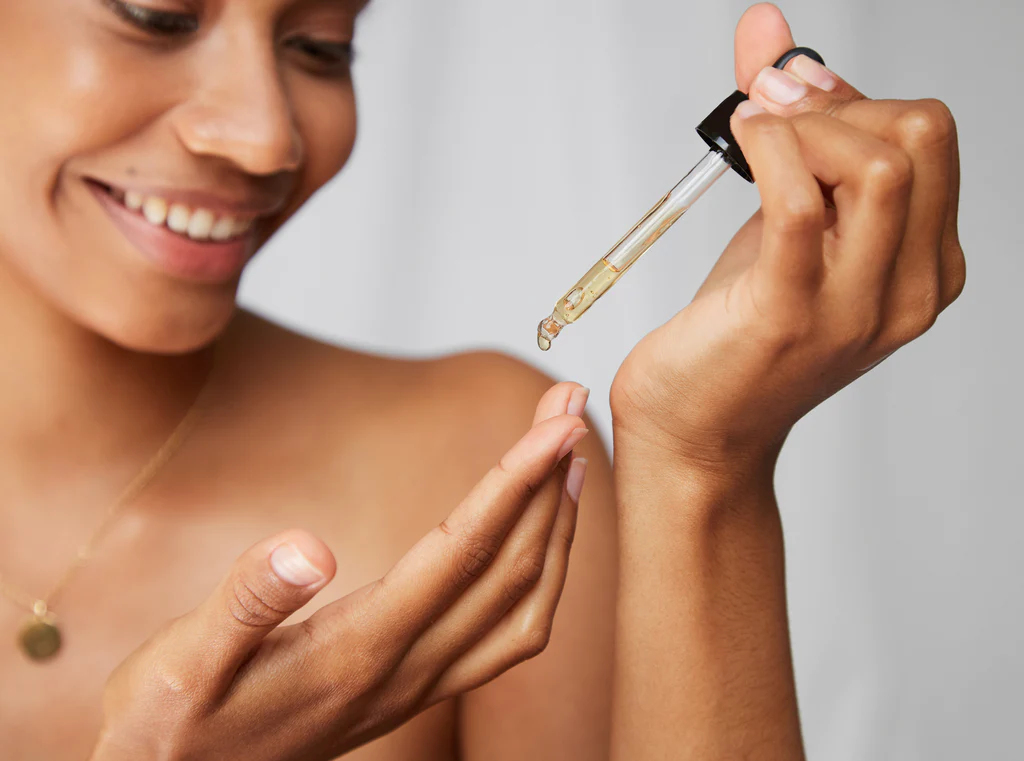Essential oils are highly concentrated plant extracts that are obtained by cold pressing various parts of plants to capture their fragrant compounds. These oils have been used for thousands of years in different cultures for their therapeutic benefits when absorbed into the skin. They are most commonly used for aromatherapy, as inhaling them is said to stimulate the olfactory system and affect the amygdala, or emotional center of the brain, to provide psychological benefits such as stress and anxiety relief, reducing headaches, and improving mood. Some people also believe that essential oils have antibacterial properties that can cure various common ailments. This information is according to Johns Hopkins Medicine and Ohio State Health & Discovery.
The Food and Drug Administration (FDA) does not regulate essential oils, which can lead to quality issues and misinformation. It is important to do your research and use caution when using essential oils to ensure their safe and effective use and to avoid potential risks, such as those described below. Despite their potential benefits for health and well-being, it is important to use essential oils responsibly to avoid harmful mistakes.
Storing them incorrectly
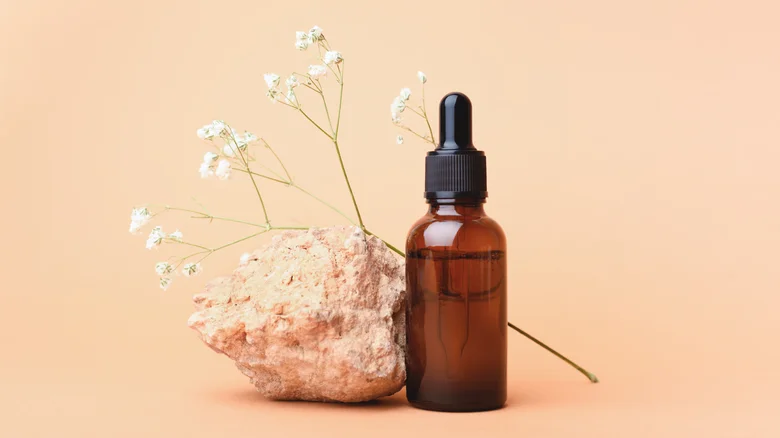
One common mistake that people make when using essential oils is not storing them properly. Proper storage is essential for preserving the quality and effectiveness of the oils.
Essential oils should be kept away from direct sunlight and heat, as these elements can alter the chemical composition of the oils and cause them to deteriorate. Exposure to sunlight and heat can also cause the oils to evaporate faster, affecting the color and quality of the oils.
It is also important to make sure the lids of the essential oil bottles are tightened securely when not in use to prevent oxidation, which can affect the fragrance and consistency of the oils. By following these storage guidelines, you can ensure that your essential oils remain potent and effective for as long as possible.
“Failing to dilute them.”
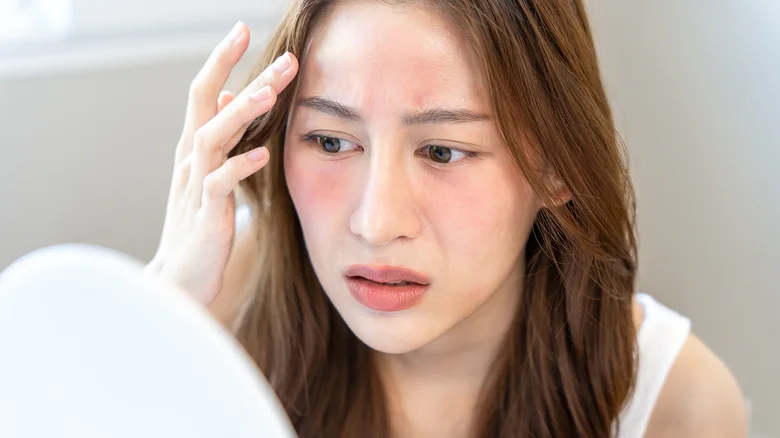
To produce small amounts of essential oil, a large volume of concentrated plant material is needed. According to cosmetic chemist Dr. David Petrillo, this results in higher ingredient concentrations than what we are used to seeing. In their pure, undiluted form, essential oils can be hazardous and may cause allergic reactions, respiratory problems, headaches, and skin irritation ranging from burns to blisters. It is important to use caution when using essential oils and to follow the recommended dilution guidelines.
Some essential oils, such as peppermint, lavender, and tea tree, are more important to dilute than others due to their higher concentrations. These essential oils are most often used for beauty and skincare purposes, and when applied “neat,” or without dilution, can lead to sensitization. According to Aroma Web, sensitization is a type of allergic reaction that can be developed from a single drop of undiluted oil. Once you become sensitized to an essential oil, you are likely to remain permanently sensitized to it even after diluting it or using it in a blend of other oils.
For adults, it is generally recommended to use a 2% dilution of essential oils, which can be achieved by adding 6-12 drops of essential oil to every 30 ounces of a carrier substance, such as lotion or moisturizer. For children and the elderly, a 1% dilution is typically recommended, which would involve using 3-6 drops of essential oil per 30 ounces of carrier substance. It’s important to note that the size of a drop can vary depending on the brand of essential oil, so it’s a good idea to use a less-is-more approach when diluting the oils.
Omitting the carrier oil.
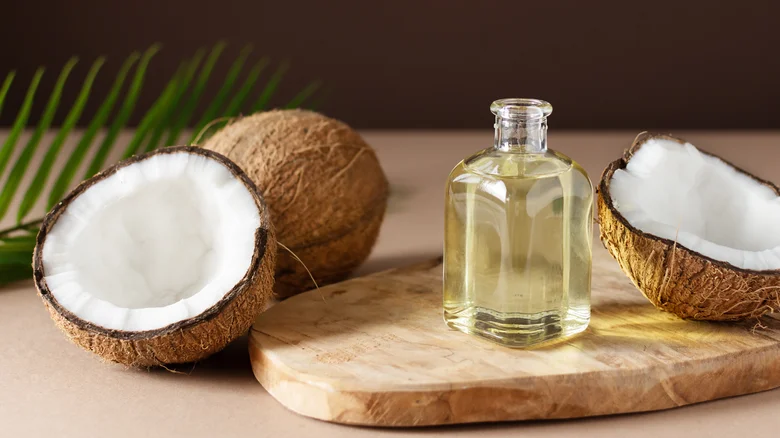
To use essential oils safely and effectively, you will need to dilute them in a carrier oil. Carrier oils, also known as base oils, are used to dilute essential oils before applying them to the skin. They help to evenly distribute the essential oils and ensure that they are absorbed at a safe rate. Carrier oils also make it easier to apply the essential oils to your skin, as they help to smooth and spread the oils evenly.
Carrier oils are used to dilute essential oils before applying them to the skin. They can have a big impact on the effectiveness and potency of the essential oils. Vegetable oils, nut oils, and seed oils are all common carrier oils. Coconut oil is a good choice because it is lightweight, moisturizing, and absorbs well into the skin or hair. Avocado oil is nutrient-rich and has little to no scent, making it a good choice for diluting essential oils. Argan oil is also a good carrier oil, as it is rich in monounsaturated fatty acids and vitamins that are beneficial for skin and hair health. Other options include jojoba, olive, almond, and rosehip oil, each of which offer different health benefits and can be used in a beauty or skincare regimen.
Using essential oils that can interact with prescription medications.

Despite being derived from natural sources, it is a mistake to assume that essential oils are always safe or pose no health risks. In fact, some essential oils can interact with prescription medications and over-the-counter drugs in negative ways, according to the National Library of Medicine. The exact mechanisms behind these interactions and the impact they have on specific drugs is not yet fully understood, as more research is needed in this area. However, it is important to be aware of the potential for interactions and to use caution when using essential oils alongside other medications.
According to some sources, the use of essential oils can lead to dangerous drug interactions and potentially life-threatening medical complications due to the high concentration of active compounds they contain. These compounds can alter the gut flora and motility, bind to plasma proteins and tissues that medications would normally bind to, and some essential oils may have blood-thinning properties that can cause issues during surgeries or interact with OTC anticoagulants like aspirin or warfarin. It is important to be cautious when using essential oils, especially if you are taking medications. Some medicines, such as hormonal birth control pills, antihistamines, immunosuppressants, and statins, may interact with certain essential oils, such as bergamot, grapefruit, and lemon. People who take antipsychotics or antidepressants should also be cautious with essential oils that contain nutmeg, clove, German chamomile, blue tansy, or yarrow.
Exaggerating their abilities or strength.
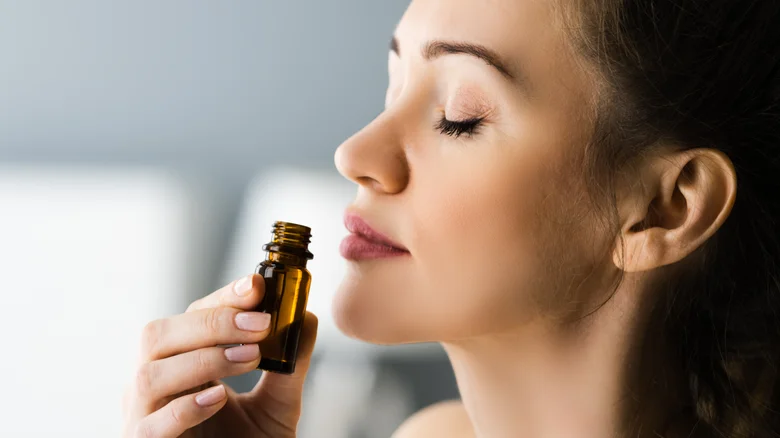
Essential oils have a long history of being used for medicinal and therapeutic purposes. Some people use them to try to treat conditions such as acne, hair loss, and inflammation. Others believe that certain essential oil blends can help with issues like memory, anxiety, stress, headaches, pain, acne, and mood, depending on how they are used.
Although there is plenty of anecdotal evidence to suggest these essential oils are useful for health and beauty purposes, you may be overestimating their power. According to Scientific American, the numerous health and wellness benefits associated with essential oil usage have not been scientifically proven to cure any disease. “Essential oils are neither medicines nor drugs because the effects have not been fully assessed yet in terms of science,” physiology researcher Hideki Kashiwadani explained to Discover Magazine. Most essential oils are also not regulated by the FDA, although some food and medicinal products containing oils are classified as “generally recognized as safe.” Certain products that do have therapeutic doses of essential oils are clinically tested and established with stringent evaluation, per Food Network.
It is important to use caution when using essential oils as an alternative to traditional medicine. While some people believe that essential oils have restorative and medical powers, there is limited scientific evidence to support these claims. Ingesting essential oils can be dangerous and potentially harmful to your long-term health. Aromatherapy, which involves inhaling the scent of essential oils, is generally considered a safer way to enjoy the reported psychological benefits of these oils. However, it is important to use essential oils with caution and to consult a healthcare professional if you have any concerns or questions about using these products.
Using synthetic oils instead of natural oils.
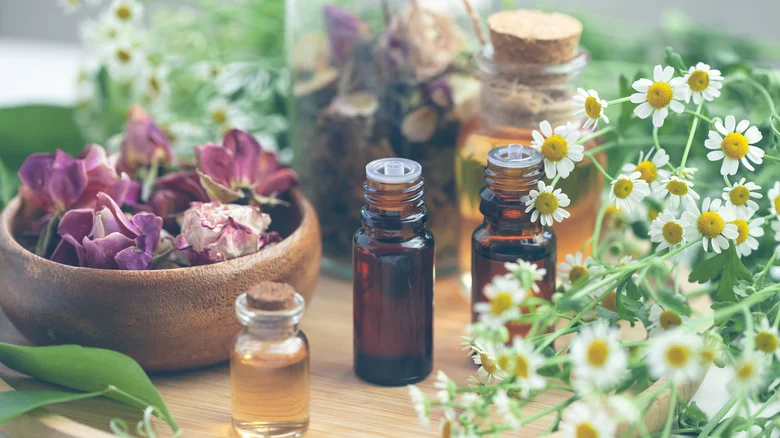
There is a wide range of quality among essential oils on the market, and the lack of regulation by the FDA means that product labels and claims may not always be reliable. Some products may claim to be essential oils, but are actually synthetic oils. These synthetic oils are not considered true essential oils, according to the National Institute of Environmental Health Sciences. People who are new to using essential oils may be unaware of this and unknowingly purchase synthetic oils that may not provide the desired benefits and could potentially cause harm. It is important to be cautious when selecting essential oils and to do research on the brand and product to ensure that you are getting a genuine, high-quality essential oil.
Essential oils are derived from natural plant compounds, while synthetic oils are made from petrochemicals and other artificial ingredients. These synthetic oils are often cheaper and have a longer shelf life, but they lack the therapeutic benefits of natural essential oils and may contain toxic chemicals and carcinogens such as benzene. They are also more likely to cause allergic reactions and respiratory problems. In contrast, essential oils can offer various aromatherapy benefits and are generally considered safer for use.
Using only ne essential oil at a time.
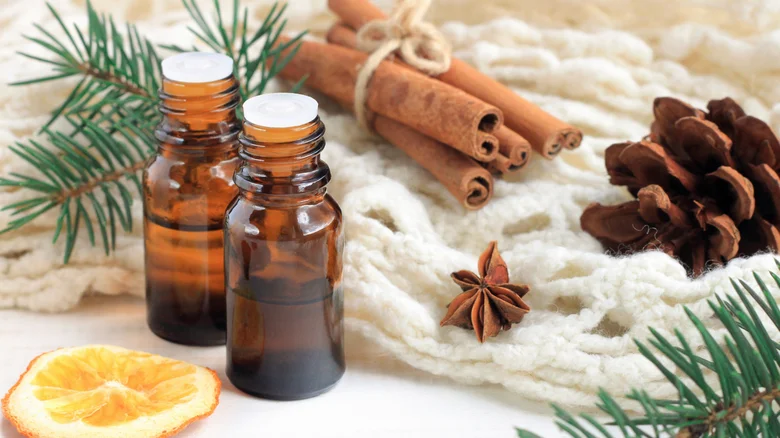
Multiple essential oils together in one blend are generally intended for a specific use, per SelfCare One. Tailor-made blends, whether made by an essential oil company or at home with the oils you have, can target stress and provide anxiety relief. They are also intended to achieve a specific feeling, like serenity, to energize your home, or complement the season you’re in. Blends are normally good for beginners and experienced users alike.
If you’re new to creating essential oil blends, it’s understandable to feel overwhelmed. You don’t want to risk creating a disaster in your kitchen. While Edens Garden states that there are no essential oils that should never be combined, some combinations may not be as effective when mixed with others. When creating your own blend, choose fragrances that you typically enjoy and aim for a blend of 3-5 essential oils. Remember to dilute the oils properly for safe use.
“Omitting the fact that certain oils can produce a hot sensation when applied.”
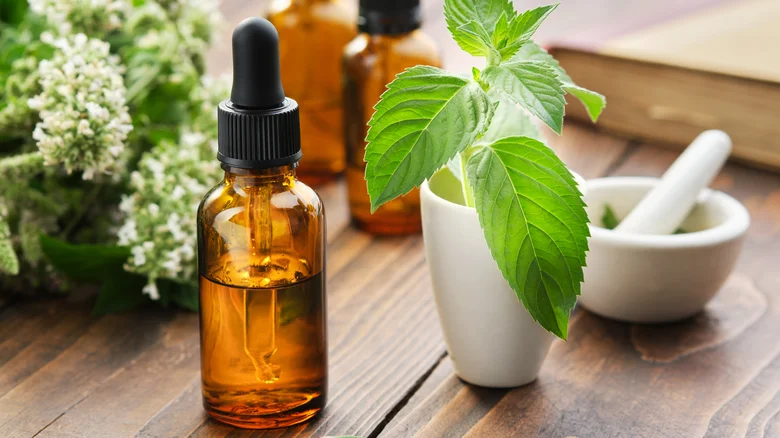
Certain essential oils are called “hot oils” for the warm, buzzing sensation they provide when applied to the skin (via Curing Vision). This heat doesn’t refer to temperature, but instead is similar to the heat you might experience when eating a spicy meal or hot pepper, per Easy Essential Oils. Oils like clove, cinnamon bark, cassia, black pepper, ginger, oregano, thyme, wintergreen, bergamot, and lemongrass give off a warm to hot burn, especially if applied directly to the skin without diluting. Minty essential oils like spearmint and peppermint provide a cooling burn.
Hot oils are commonly used for soothing purposes. When applied to the skin they can help relax muscle tension and acute pain ranging from sore throats to menstrual cramps. Despite their benefits, the warmth they produce means they shouldn’t be used in the bath. Before you begin using essential oils that may produce a hot sensation, be sure to perform a patch test using 1 to 2 drops of the oil in question. If you have a negative reaction, flush the skin with a plain carrier oil instead of water and discontinue use.
Neglecting your diffuser
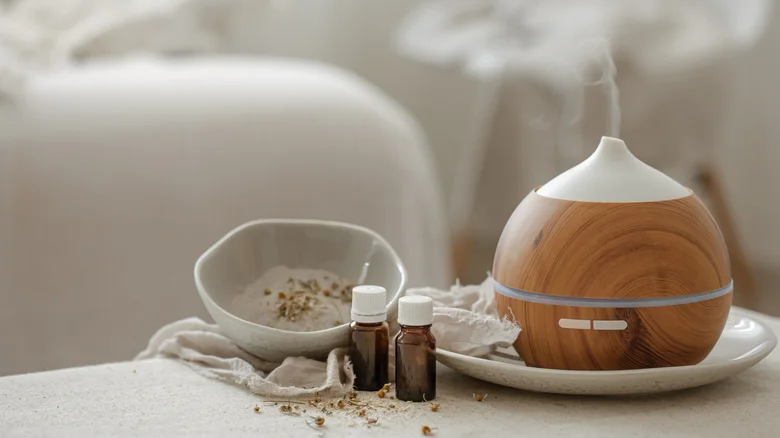
To get the most out of the aromatic and therapeutic benefits of essential oils, many people use a diffuser. Diffusers have been used for thousands of years in different cultures and religious ceremonies (via Homesick). Nowadays, they are small electric devices found in homes and offices that break down essential oils into smaller molecules. The diffuser releases the essential oil and water mixture as a mist, evenly dispersing the beneficial oils and their pleasant aroma throughout the space.
To fully experience the aromatic and therapeutic effects of essential oils, many people use diffusers. Diffusers have a long history of being used in various cultures and religious ceremonies (according to Homesick). These days, diffusers are small, electric devices that can be found in homes and offices. They work by breaking down essential oils into smaller molecules and releasing them as a mist, along with water, into the air. This helps to evenly disperse the beneficial oils and their pleasant aroma throughout the space.
Although diffusers are a great self-care tool to have around, there are a few drawbacks to using one. Mainly that they need to be cleaned regularly. “Diffusers that use water can harbor bacteria in the liquid when it’s left sitting, and this can make you very sick the next time you turn on the device,” Dr. Shirin Peters told Byrdie. In addition, regular cleaning helps prolong the life of your diffuser and prevents essential oils you don’t want to be blended from mixing together.
To keep your diffuser clean, unplug it, take it apart, and apply mild soap to it using a damp cloth. In between cleanings you can put a couple of drops of vinegar in the water and let the diffuser run. Be sure to rinse the insides and let dry completely when finished so it’s ready the next time you want to use it.
“Incorrectly applying the oils”
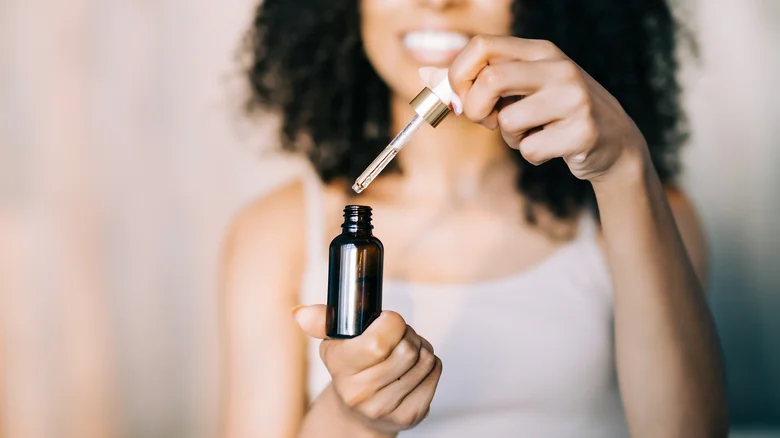
The appropriate use of essential oils is necessary to achieve their reported benefits. Inhalation is considered the safest way to enjoy essential oils, but they can also be applied topically or used internally. If you don’t have a diffuser to place your diluted essential oils in, you can place a couple of drops on a cotton ball and leave them in hidden corners around your home to let the scent disperse. According to Young Living Essential Oils, you can also place a couple of drops in the palm of your hands and take a few deep breaths before washing away with a mild soap.
This is because the oil is localized and doesn’t involve the immune system.
The guidelines for both the product and the intended user, as well as performing a skin patch test. To perform a patch test, wash your hands and forearms with unscented soap. Apply a drop of oil on the clean skin. Leave the patch of skin covered in a clean, lightweight wrap or gauze for 24 hours. If you experience irritation or burning, remove the gauze and remove the product with soap and water.
“Using them around pets” is a bit ambiguous.
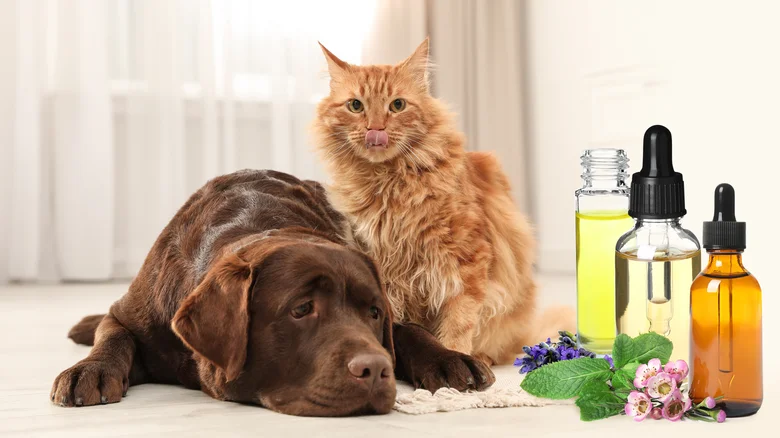
Essential oil diffusers can also cause difficulties for your pets, particularly if they have respiratory problems. Furthermore, their sense of smell is much stronger than ours and a strong-smelling oil can cause them to be overwhelmed. “If we can smell it, imagine 20x more for that animal. As humans, we get nose blind. We’ll diffuse for longer and longer amounts of time, and it’s overwhelming for the animal and can make them sick,” pet groomer Melissa Conti-Diene told Outward Hound.
Certain oils are more dangerous than others. Coralville Animal Hospital notes that essential oils like cinnamon, pennyroyal, citrus, tea tree, pine, and eucalyptus are all toxic to pets. Alternatively, chamomile, lavender, rosemary, and frankincense are considered pet-safe. If you are unsure about a particular essential oil and its effect on your pet, speak to your veterinarian.
Using oils that harm your skin
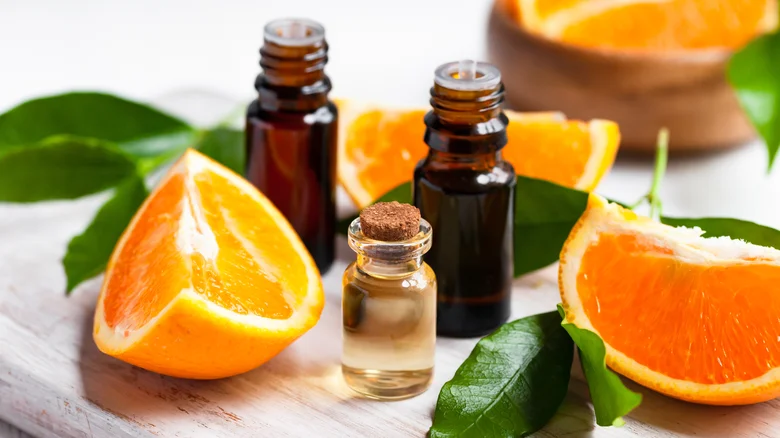
There are essential oils that may harm your pets, there are oils that can harm your skin if applied directly. For example, many people use essential oils like rosemary and tea tree oil to help treat acne. However, when applied directly to the skin, these oils can actually cause more harm than good. According to Dr. Deborah ,they can damage different layers of the skin, causing irritation in the form of redness, swelling, sensitivity, and more breakouts.
Experts also recommend avoiding applying citrus oils like bergamot, lemon, orange, and grapefruit to your skin. They may smell fresh and energizing, but they are phototoxic oils. ACHS notes that phototoxic, or photosensitive, oils like citrus oils contain furocoumarins which can cause severe sunburns when your skin is exposed to UV light.



